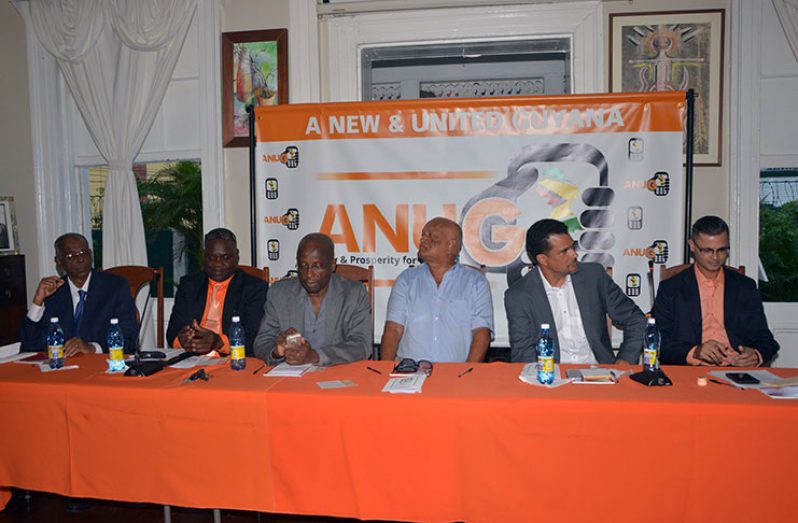– party confident of holding balance of power in National Assembly
A New and United Guyana (ANUG) party was officially launched on Friday at Moray House with founding member and former Speaker of the National Assembly Ralph Ramkarran appealing for a political system of shared governance.
According to Ramkarran, Guyana is a politically unstable country. He noted that this stemmed from the one-seat majority that the PPP had while in government and that the current government has.
“This instability is likely to continue and we are facing a critical time in our history. We need to make our decision before the oil starts to flow,” the former speaker said. “Unless we have a governance system that eliminates or substantially reduces the potential for corruption, the authorities will buy over the Guyanese people with some economic reform and some economic development, so it will reduce their fear of economic domination by the another side.”
And Ramkarran has said that a shared-governance system could be the solution Guyana needs.

“I have been convinced for a very long time–for many years– that the best solution to the problem of Guyana is a governance system that includes the major political parties,” he said.
That was tried since 1950 with the People’s Progressive Party (PPP), according to Ramkarran, but the parties since then have embarked on a struggle for “ethno-political dominance” and that has remained the political culture in Guyana to this day.
He highlighted that there were several efforts engaged in by both the PPP, PNC and even the APNU+AFC coalition governments to foster a system of shared governance, but those efforts were not successful.
“It didn’t come about for one simple reason: if those proposals are put in place, it is likely that the PPP will get the presidency and the PNC will get the prime minister– which is perceived to be a lower position,” he said.
With the opinion that neither of the major political parties will work towards a shared system of governance that would augur well for Guyana, Ramkarran noted that ANUG’s intention is to apply pressure in the political landscape.
“We will not join either of the major political parties to form a government. We will not go into a government. If one of the parties gains a plurality and not a majority and they are searching for a partner to give them a majority, we wouldn’t be there,” he affirmed.
Simultaneously, he expressed confidence that ANUG could win the elections, but even if that does not happen, he said: “I believe that there is a very strong possibility that we will get enough seats in the National Assembly to hold the balance of power.
“We want to have the vote to ensure that we will be able to play a role in forcing the major political parties to come to a constitutional accommodation,” he said.
And speaking on the party’s agenda, he said that persons within the party may have different political ideas, but what the party intends to do is listen to the people of Guyana and hear what it is that they really want.
In a detailed statement issued at the launch, ANUG also identified youth, reducing poverty, consensus on governing the oil industry and climate change as major areas of focus.
MEMBERSHIP
At the launch, no mention was made of the party’s presidential candidate or party leader. In the party’s constitution however, which was presented at the launch, it provided for a National Conference of Members, an elected Executive Committee and a Party Group.
“We hope to gather enough members– and events like these will bring in membership– and once we get a good set of members we will hold a members’ conference,” Ramkarran told the Guyana Chronicle.
He shared too that it is the intention of the party to engage more with members of the public and recruit members.
“I think once we hold some more of these meetings– out in the regions and so on– we will be able to develop very quickly,” he said.
The party was unveiled on Christmas Day, 2018, but now has to contend with garnering public support possibly as soon as by March of this year, for regional and general elections, following the no-confidence vote against the incumbent APNU+AFC government.




.jpg)










